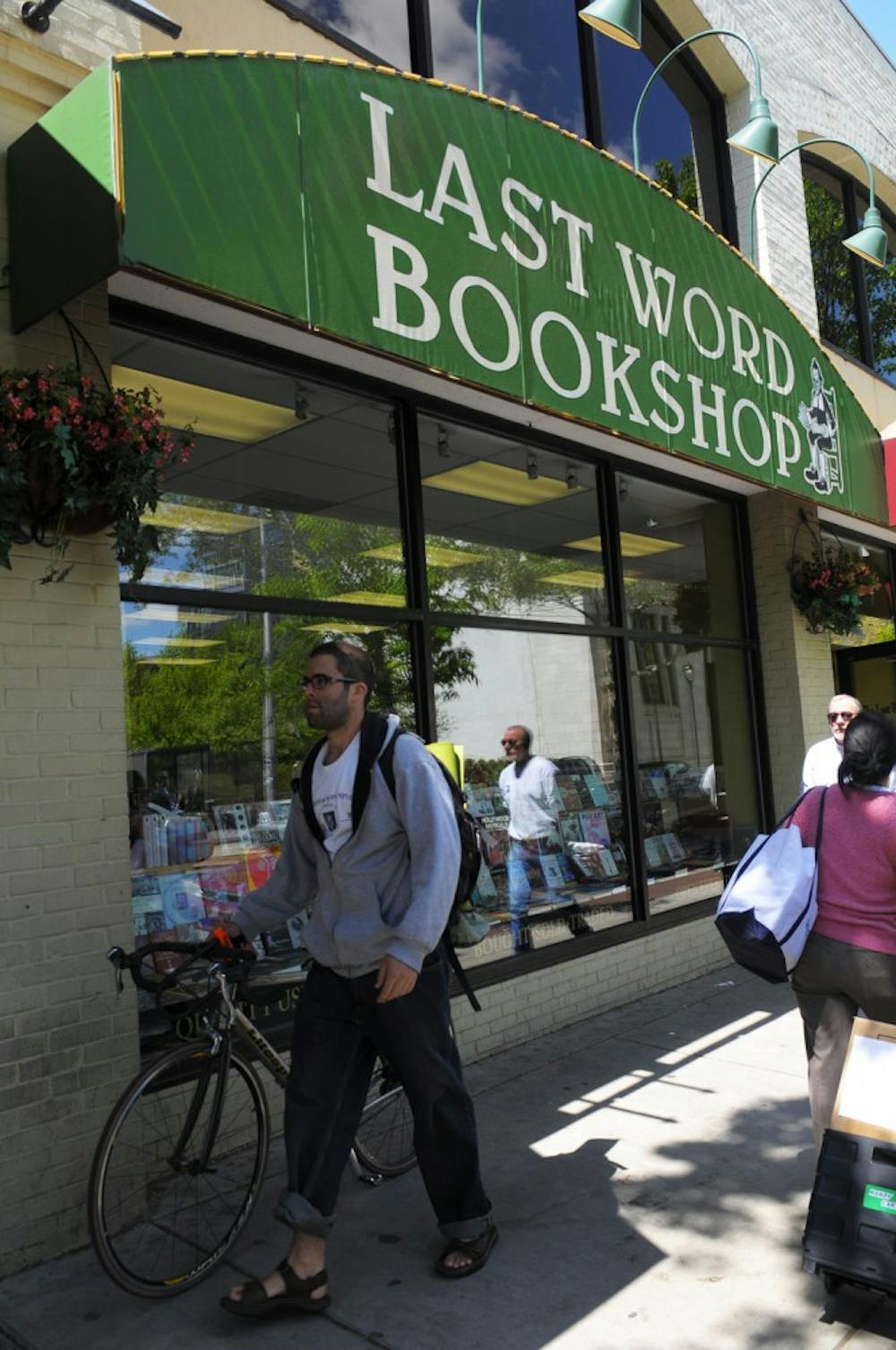
As internet bookshelves grow, booksellers that remain standing — including giants Barnes and Noble and recently rescued Borders — find terra firma difficult to navigate.
Many owners of local independent bookstores feel the sting too, as the economy, Internet and evolving consumer habits change business.
“It’s not an easy climate,” said Ashley Montague, owner of the Penn Book Center.
Long before Amazon, Borders and Walmart, there was a “heyday” of bookstores in the 1960s and 70s, Montague said. But “with the advent of all these different ways of purchasing books,” many independent bookstores have been forced to close.
“Many retail bookstores have reported decreases in purchases of general reading books over the past year and Penn is experiencing the same trend in its own store,” Associate Vice President of Business Services Chris Bradie wrote about the Penn Bookstore — at 3601 Walnut Street — in an e-mail, citing a growing interest in e-readers among clients.
A report by Forrester Research predicts that e-reader sales will double, from three to six million this year alone.
But some bookstores near campus remain resilient.
Although e-readers may potentially increase the availability of textbooks, when tested in academic settings such as libraries, pilot programs show that “students and faculty thought it functionally wanting,” Joseph Zucca, Penn Libraries director of communications, wrote in an e-mail.
“Nothing’s changed around here,” said Larry Maltz, owner of Last Word Bookshop, at 220 S. 40th St. He added that his customers aren’t the type to be swayed by the economy and new technology.
Students — who make up around half of his customer base — come in for both academia and pleasure, Maltz said, adding that many come with course lists because “they know they can get their books a lot cheaper here.”
The Penn Book Center, at 130 S. 34th St. — has been around since 1962 and features books by Penn and Drexel University professors, as well as local authors and poets — relies on textbook sales “to survive,” Montague said.
To curb losses, the Book Center has tried making its operations more efficient. The store has reduced shipping and return costs and started buying and selling used books, Montague said.
Opened in 1936, Robin Bookstore is the oldest independent seller in Philadelphia and has closed other locations because of lost sales. The store also no longer stocks an inventory of new books, owner Larry Robin said. “That’s in response to the economy and reading habits.”
Its sole remaining location, on the second floor of a building at 108 S. 13th St., now features an art center intended to draw customers. But the business has been able to withstand 10 years of negative profit only because Robin owns the building and rents out the first floor, he said.
“The only people you have running these small stores are people that love it, and usually they’re supporting it with their own money,” Robin said.
Bookstores were able to survive competition from online retailers directly selling books to customers, he said. “What the book industry has not survived is the thousands and thousands of individuals who are selling their books online,” often for mere pennies and collecting additional revenue from shipping.
Robin’s store brings in “a shrinking and aging clientele” with “streaks of young people,” he said, adding that 25 to 30 percent might be college aged. He said many customers are regulars.
Fewer independent bookstores means a narrowing of popular taste, he said. The online market keeps customers out of stores, preventing them from browsing the aisles and discovering new voices and talent — which the “old model of brick-and-mortar storefront stores” relies on, Robin said.
The Daily Pennsylvanian is an independent, student-run newspaper. Please consider making a donation to support the coverage that shapes the University. Your generosity ensures a future of strong journalism at Penn.
DonatePlease note All comments are eligible for publication in The Daily Pennsylvanian.




